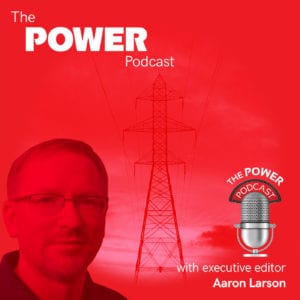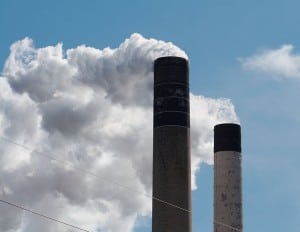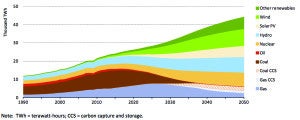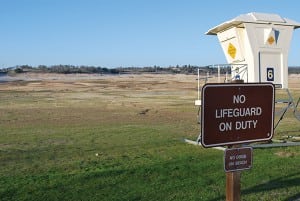CO2
-
Nuclear
Reversing Climate Change with Nuclear Power [PODCAST]
According to the Energy Impact Center, a Washington, D.C.-based research institute focused on deep decarbonization, CO2 emissions “must go net-negative by 2040, globally across all energy sectors” to begin countering climate change. The only way it sees to accomplish this is to “produce energy inexpensive enough to make carbon negative fuels that compete with fossil […]
-
News
Power Plant Emissions Down Substantially in U.S. Since 1990
Power plant SO2 and NOx emissions have decreased 92% and 84%, respectively, since Congress passed major amendments to the Clean Air Act in 1990. Meanwhile, mercury air emissions from power plants have decreased 90% since 2000, as federal limits on mercury and other hazardous air pollutants from coal-fired power plants went into effect in 2015. […]
-
Gas
The POWER Interview: GE Unleashing a Hydrogen Gas Power Future
Since the 1940s, when General Electric (GE), launched its gas turbine operations, the company has pioneered and commercialized a lengthy list of gas turbine technologies, large and small. As the decarbonization movement gains pace and more renewables flood the landscape, the company’s gas turbines have taken on new crucial roles to provide dispatchability and flexibility. […]
-
Commentary
What’s Next for the Clean Power Plan?
“The Trump administration is listening to the people of Wyoming,” remarked Sen. John Barrasso (R-Wyo.), chairman of the Senate Committee on Environment and Public Works. His comment referenced a
-
Renewables
Game-Changing Supercritical CO2 Cycles Are Closer to Commercialization
Supercritical carbon dioxide (sCO2) cycles—which are inching closer to commercial applications for waste heat recovery, concentrating solar power, nuclear, and fossil energy—offer higher thermal efficiencies and power density than conventional steam Rankine and Air Brayton cycles in use today for power generation. But to realize these potentially game-changing cycles, common challenges associated with turbomachinery must […]
-
Renewables
Can Angela Merkel, the So-Called “Climate Chancellor,” Hold Germany to Its Greenhouse Targets?
On Sunday, September 24, Germany finalized voting in its 2017 federal elections. Citizens were able to vote by mail ahead of Sunday’s election or they could chose to efficiently breeze through a voting center, make a physical “X” next to, first, the local direct candidate of their choice. And then make a second mark next […]
-
Coal
U.S. Carbon Emissions Increase from Last Year, but Still 28% Less Than in 2005
A newly released update to the Power Sector Carbon Index, developed by Carnegie Mellon University with the support of Mitsubishi Hitachi Power Systems (MHPS), found that U.S. power plant emissions averaged 955 lb of CO2 per MWh during the first three months of 2017. 1. Carnegie Mellon University Power Sector Carbon Index. The index shows […]
Tagged in: -
Renewables
Experts Debunk 100% Renewables Decarbonization
A group of 21 prominent energy and climate experts, writing in the June 19 edition of PNAS (“Proceedings of the National Academy of Sciences”) finds that the argument by Stanford University professor Mark Jacobson that the U.S. can end carbon dioxide emissions with an energy diet entirely of wind, solar, and hydro “between 2050 and […]
-
Environmental
The Deep Dispute over “Deep Decarbonization”
It began as an academic argument over how the world could meet a goal of 90% reductions in carbon dioxide emissions by 2050, known as “deep decarbonization.” Underneath the academic language is a fight
-
Renewables
Drought Has Big Impact on California Power Market
Rain and snow has returned to California, ending the record-setting drought with record-setting precipitation. The drought led to forest fires, dead orchards, and brown lawns. It also took a big bite out of ratepayers’ wallets and increased global warming emissions, due to the loss of low-cost, zero-emission hydropower. In a study released April 26 by […]
Tagged in:









